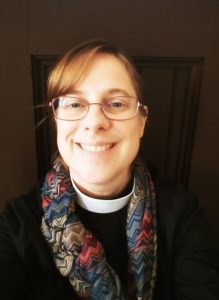With New Eyes
I am rarely left speechless. Snappy retorts are part of my native language, and those few times when my mother’s instructions for what to do when I cannot say anything nice dominate my response, the conversation in question is likely a memorable one. Oddly enough, these conversations when I’ve kept compliantly quiet are the ones I am more likely to remember with regret.
A few years ago, I was making polite dinner-party conversation with another adoptive mother, when the topic turned to politics surrounding her child’s birth country. The barrage of harsh comments this mother unleashed about this country’s culture knocked me off balance. I stood quietly asking myself how on earth she planned to teach her child to be comfortable with every part of himself when this was how she felt about a country she had visited, come to know, and from which she had received the gift of a child to love and a nation’s trust in her to love him.
My husband and I understood from the outset that we could not adopt a child internationally without also adopting a people and their culture. We are, along with our biological sons, patently white Americans, but we embarked on a journey of choice to make our family part-Korean. We practiced the normal things adoptive families do to respect their child’s birth culture, learning greetings, food, customs, and holidays. Somewhere in the process, our lives exploded with love for all things Korean, and we have embraced certain habits as our own.
Embracing those habits, though, can be very problematic. I have a hard time, for example, not bowing the first time I meet an Asian-American. It is a habit which would be received by many Asian-Americans as racially stereotyping them when it comes from a white American. Meanwhile, I still occasionally cringe a little at other cultural disconnects, like the time a Chinese mother observed that my son, like her children, was a cultural “banana.” I looked at her in utter bewilderment, which turned to awkward surprise when she explained that it meant he was “yellow on the outside and white on the inside.” She may be comfortable using that term, but I never will be.
Such discomforts reinforce the daily question of how to pass along a culture which is not and cannot be my own to someone to whom it is a birthright. Simply stated, I want my son to be comfortable in his own skin. He is an American teenager, but he is also a Korean.
In a recent episode of NPR’s Code Switch (a podcast on race and identity which I heartily recommend), guest Kim TallBear lamented, “from my vantage point as an indigenous person, I see a whole lot of American-U.S. imperialism going on in the way people are taking these DNA tests and running around the world making claims to an identity and a people that they don’t even know.” (Code Switch: “Race Underneath the Skin,” 26 December 2018). From a perspective which is generations removed from the ethnic source, this may be the case, but from my vantage point the question is reversed. How to hold to a culture and identity on behalf of a child who barely knows them. How do I reintroduce my son to a people who know and claim him as their own, but whose language he does not speak? How do I help him to be bi-cultural?
It is an ongoing conversation in the international/intercultural adoption community. Some of the answers are likely to stretch us outside our comfort zones. All of the answers require parental humility as we walk into a world of strange vocabularies, scents, foods, and customs. The questions sound vain to non-adoptive families. “What do I do with my child’s hair?” “How do I explain political issues to my child?” “Is Korean his native language, or English?” “How do I answer ignorant and innocent questions as if I am an expert on my child’s race?”
I won’t pretend to know the answers to these questions. I am thankful, myself, for the Asian people who, without judging my foolishness, let me ask my own ignorant and innocent questions about moving through this world in Asian skin. I am grateful to live in a country where my literary diet—fiction and non-fiction—can include Korean and other East Asian perspectives. Even though food, K-Pop, and Samsung electronics may feel like I’m grasping at straws, these tokens are significant. Unlike some cultures, Korea has been eager to export their culture to the West, which means my son, unlike many other international adoptees, has access, however casual, to his cultural heritage.
The world will always only see me as a white American. I’m thankful for a son who has given me the eyes to see the world from another perspective. But he, both Korean and American, will have to forge his own way.










